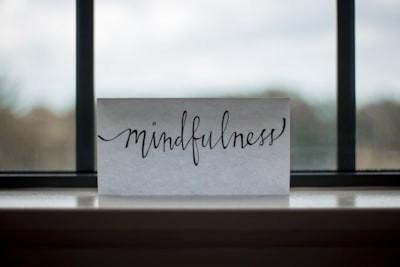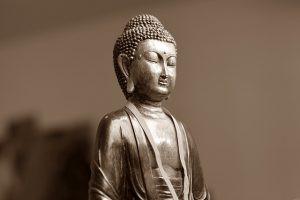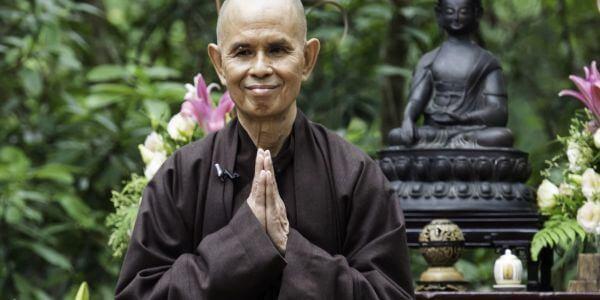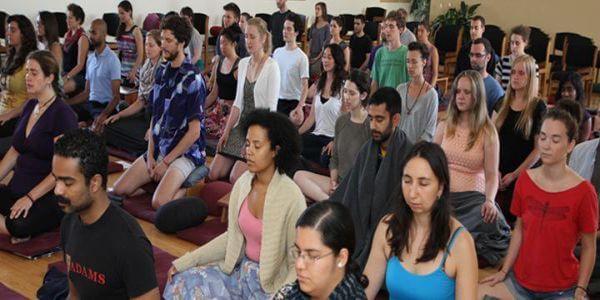History of Mindfulness: From East to West and Religion to Science
Curated from: positivepsychology.com
Ideas, facts & insights covering these topics:
7 ideas
·1.23K reads
8
Explore the World's Best Ideas
Join today and uncover 100+ curated journeys from 50+ topics. Unlock access to our mobile app with extensive features.
The History of Mindfulness
People have been practising mindfulness for thousands of years.
Mindfulness was popularised in the East by religious and spiritual institutions.
The popularity of mindfulness in the West is rooted in Buddhist and Hindu traditions and can be traced to particular people and secular institutions.
17
219 reads
A Brief History of Hinduism
Hinduism is widely considered to be the oldest religion in the world. It initially arose as a synthesis of many religious traditions around the historical region that now makes up India. Then, in the 1800s, British writers started calling Vedic traditions Hinduism.
The earliest traditions, which have since been incorporated into Hinduism, arose more than 4,000 years ago in the Indus Valley- now Pakistan. These religious traditions continued to develop in Vedic writings 2,500-3,500 years ago, including rituals and the worship of gods common to modern-day Hinduism.
17
197 reads
A Short History of Buddhism
Buddhism was founded around 400-500 B.C.E. by Siddhartha Gautama, who became referred to as the Buddha. Since the Buddha's lifetime, it has split into several different traditions, including Theravada Buddhism and Zen Buddhism.
Buddhism and Hinduism share many commonalities. One is they're both concerned with the concept of dharma - a way of life that is in harmony with the universe's natural order. Mindfulness (Sati) is considered to be the first step towards enlightenment.
20
184 reads
How Mindfulness Relates to Yoga
Some mindfulness meditation practices, such as the body scan, are very similar to yoga as they both involve awareness of one’s body.
The origin of yoga coincides with the origin of Hinduism, and the recent rise of yoga’s popularity in the West coincides with the rise of mindfulness. This underscores the intertwined nature of Buddhism, Hinduism, mindfulness, and yoga.
18
174 reads
How Mindfulness Moved From East to West
Jon Kabat-Zinn was the biggest influence on bringing mindfulness from the East to the West.
Kabat-Zinn founded the Center for Mindfulness at the University of Massachusetts Medical School and the Oasis Institute for Mindfulness-Based Professional Education and Training. Here, he developed his Mindfulness-Based Stress Reduction (MBSR) program.
Kabat-Zinn learned about and studied mindfulness under several Buddhist teachers, including Thich Nhat Hanh, which gave him an Eastern foundation in mindfulness that he integrated with Western science.
17
158 reads
Mindfulness’ Role in (Positive) Psychology
Mindfulness plays an important role in the greater field of psychology and positive psychology.
Mindfulness has become a tool for any practitioner’s toolbox. Mindfulness-Based Cognitive Therapy (MBCT) and Mindfulness-Based Stress Reduction (MBSR) are used to treat a variety of patients. Mindfulness meditation is also used to increase an individual's level of well-being.
17
151 reads
Mindfulness Practice and Philosophy
- Mindfulness could be a yoga practice that involves mindfulness
- It might involve setting aside time for mindfulness meditation sessions
- It could involve practising mindfulness during everyday activities, such as washing dishes.
Very few mindfulness traditions are based on restricting their teachings to an exclusive group. Therefore the versatility of mindfulness is the key part of the philosophy of mindfulness, whether it is practised religiously or in a secular matter.
16
151 reads
IDEAS CURATED BY
Lucas Jackson's ideas are part of this journey:
Learn more about religionandspirituality with this collection
The spiritual benefits of fasting
The rituals and practices during Ramadan
The importance of community and charity during Ramadan
Related collections
Similar ideas
1 idea
Meditation: Overview, Research, and Effectiveness - The Human Condition
thehumancondition.com
10 ideas
All About Mindfulness 🪴
verywellmind.com
3 ideas
Why So Many Americans Are Turning to Buddhism
theatlantic.com
Read & Learn
20x Faster
without
deepstash
with
deepstash
with
deepstash
Personalized microlearning
—
100+ Learning Journeys
—
Access to 200,000+ ideas
—
Access to the mobile app
—
Unlimited idea saving
—
—
Unlimited history
—
—
Unlimited listening to ideas
—
—
Downloading & offline access
—
—
Supercharge your mind with one idea per day
Enter your email and spend 1 minute every day to learn something new.
I agree to receive email updates





